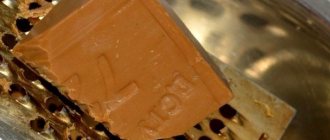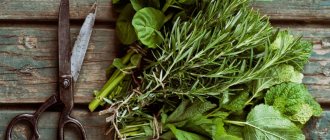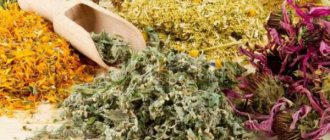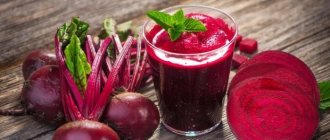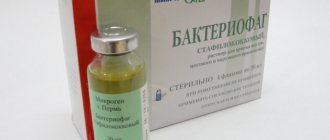Features of herbal medicine
A laxative collection will help you cope with constipation faster. This method of treatment is suitable for spastic and atonic constipation. In the process of using herbal remedies, overall well-being improves, as the body is saturated with useful microelements, as well as vitamins.
You can prepare a good laxative mixture yourself at home, or buy it ready-made at the pharmacy. Each option is affordable and economical.
You should not mindlessly take decoctions for constipation, because their effect on the body has a downside. A high concentration of biologically active components can have an unpredictable effect on the condition, especially for children, women during pregnancy, and the elderly.
Herbs for cleansing the intestines need to be selected wisely. Some plants do not go well together, and certain groups can have the opposite effect.
Herbs for constipation in adults with a laxative effect have the following indications:
- excess weight, which disrupts metabolic processes, causing problems with the stomach and intestines;
- constipation against the background of emotional shock, stress;
- chronic constipation, when herbal remedies will be an auxiliary therapy;
- cleansing the intestines and the whole body, which needs to be done regularly;
- weak peristalsis;
- disruption of digestive processes due to deficiency conditions.
The laxative collection acts by replenishing the lack of water in the intestines and increasing it, which promotes the movement of feces. Plants with a laxative effect are safe, as long as you follow the dosage and do not overuse the combination.
The effect of herbal remedies is almost the same, but each plant has its own characteristics of use and restrictions. When there is no effect within 2 days, self-medication should be abandoned by visiting a doctor. If the matter concerns children, pregnant women, and the elderly, then you need to start with consulting a specialist. Possible adverse reactions must be taken into account.
Laxative cleansers

Laxatives for bowel cleansing have been popular for a long time. This method is considered very gentle, but now we will talk not about chemicals, but folk remedies.
Natural laxatives include fresh vegetables and fruits. For example, if you eat apricots, peaches, plums, apples, and figs every day, then not only will your intestines be in order, which in itself guarantees no malfunctions, but the body will receive many useful components.
In addition, the small seeds found in figs and raisins have a good effect on intestinal motility. Compotes made from dried fruits of apples, cherries, and apricots are also suitable for cleaning. If you drink one glass of dried prune tincture in the morning on an empty stomach every day for 7 days, you can get rid of constipation. The tincture is prepared very simply - pour 2 glasses of prunes with 1 liter of water (preferably spring water or melt water) and leave for 12 hours.
Among vegetables, beets, turnips, carrots, cabbage, and radishes have excellent cleansing properties. Eating salads made from them daily will not only help cleanse, but also add essential vitamins and minerals to the body. In the old days (especially in villages) they used dairy products as laxatives to cleanse the intestines:
- sour milk;
- kefir;
- curdled milk;
- koumiss.
Vitamin B is an excellent helper for the body in cleansing. Therefore, a laxative for cleansing the intestines should contain it in large quantities. These products include:
- Honey.
- Fish.
- Rye bread, barley and whole grain wheat flour, as well as sprouted wheat.
- Almond.
- Dandelions.
- Brewer's yeast, etc.
And, of course, effective cleansers include vegetable oils, which can either be included in various cleansing recipes as one of the components, or used as a separate product.
List of effective
The most effective herbal remedies for the intestines during constipation:
- senna leaves;
- kelp;
- linen;
- Slabin collection;
- collection No. 3;
- licorice;
- oregano and milk thistle;
- buckthorn bark.
Seaweed
Kelp or seaweed, known as seaweed, contains a large number of active additives. Dried leaves should be used for constipation. They are effective due to their ability to absorb liquid and increase in volume. The laxative effect is also achieved due to irritation of the intestinal mucosa, which speeds up the process of emptying.
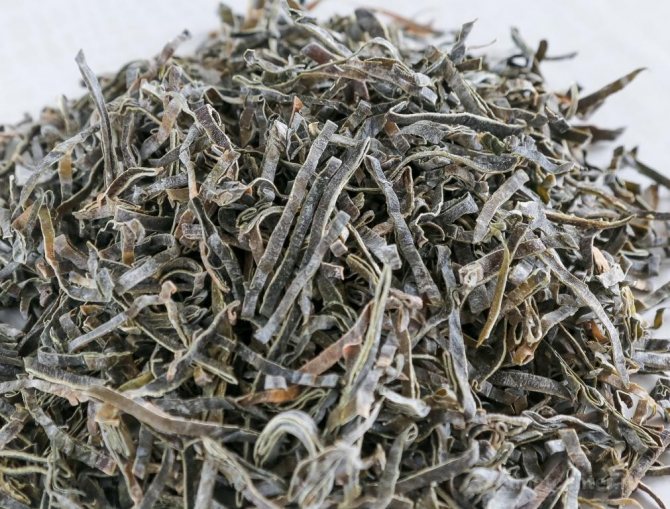
This laxative herb has the following contraindications:
- iodine intolerance;
- severe pathologies of the kidneys and liver;
- diseases of the cardiovascular system.
Senna
Senna is considered the most effective herbal remedy. It irritates the walls of the organ and also replenishes the lack of microelements. The complex effect helps improve the functioning of the gastrointestinal tract. The action begins after about 7-10 hours.
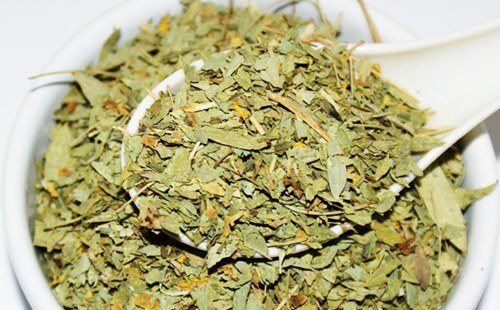
Senna is especially effective for constipation and hemorrhoids, when these two disorders are combined. It is very simple to prepare the product. A few spoons of raw materials are poured into a glass of boiling water. The decoction is infused for several hours and taken before bedtime. The course of therapy can be continued for no more than 2 weeks.
Buckthorn
Buckthorn is a medicinal plant that has a pleasant taste. The composition includes anthraglycosides, which irritate the receptors, producing a laxative effect. The effect begins after 8 hours.
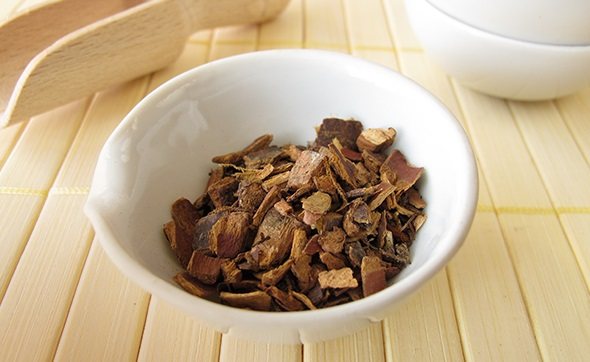
Used to treat chronic constipation. It is not recommended to prepare the product for allergies, obstructions, or acute gastrointestinal diseases. Cannot be used for children, pregnant or lactating women.
To prepare, you need to pour 5 g of the plant into 100 ml of boiling water. After cooling, you can take 50 ml 2 times a day.
Licorice
To obtain a laxative effect, take the root of the plant. It is ground to a powdery mass. Prepared as a decoction. The laxative effect is provided due to the content of glycyrrhizic acid in the composition.
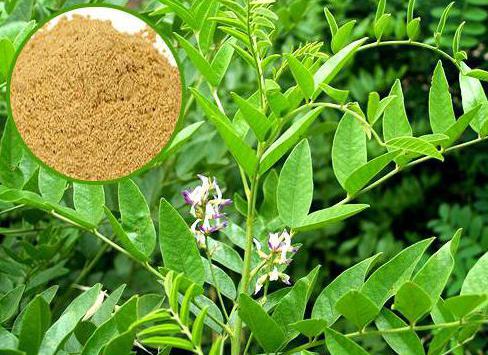
The root is used in medicine not only to treat constipation, but also to eliminate its causes. Pharmacy herbal laxatives usually include this plant.
The most effective herbs and preparations
The use of laxative herbs has a beneficial effect on hydration and increasing the volume of contents in the intestines, helping to normalize its excretory effect. Herbal medicines pose virtually no danger when used by an adult patient, if, of course, all necessary recommendations and doses are followed. In addition, herbal infusions taste pleasant.
The direction of action of these herbs is in most cases similar in all species. However, all laxative herbs and medicinal preparations for laxative purposes have their own characteristics of use. What kind of herbs are these? It is necessary to name not only the plant itself, but also specifically the parts that are used to relieve constipation. So, herbs and herbs that have laxative effects:
- Laminaria (thallus).
- Hay (leaves).
- Buckthorn (bark).
- Licorice root.
- Flax (seeds).
- Collection of herbs (No. 3, gastric).
- Collection of herbs (Slabin).
Now we need to look at each plant in more detail: what it is, contraindications, and the like:
Kelp. This is the name of algae, also known to many as seaweed. But to prepare a laxative, you do not need to take the whole plant, but only the thallus, consisting of dried leaves. It contains huge amounts of biologically active substances. In appearance, the raw materials are small green pieces with a palette of shades and the inherent smell of the sea. The taste is slightly salty.
Laminaria has a good ability to absorb liquid and multiply in volume, which makes it effective in cleansing the intestines. Also, the laxative herb is an excellent irritant of intestinal receptors, and this speeds up the process of bowel movements.
The mild laxative effect of this plant has been successfully used to relieve patients from chronic constipation, which is directly related to weak intestinal motility.
However, kelp has contraindications. That is, not everyone can use it as a remedy for constipation. If there is iodine intolerance, the patient suffers from kidney and vascular diseases, or has intestinal obstruction, then this herb should be excluded. And those patients who can be treated with it should know: they use only dry kelp (one teaspoon), and they need to drink a lot of liquid.
Senna. It is considered the most effective laxative herb. Only crushed leaves should be used. Just like the previous plant, it has an excellent irritating effect on intestinal receptors with the help of biologically active substances that it contains. As a result, intestinal motility begins to function better, making stool easier. The herb does not have any special taste; on the contrary, it has a slightly bitter taste. Effective eight hours after administration.
Indications: patients who have chronic constipation and hemorrhoids. There are restrictions on the use of this plant, for example, it is undesirable to use it in patients suffering from intestinal obstruction, inflammatory processes in the digestive tract, as well as bleeding and umbilical hernias. Prohibited for use by women during pregnancy and children.
The remedy is prepared as a decoction. To prepare, take six grams of dry leaves per 250 grams of boiling water. To successfully go to the toilet in the morning, take the decoction before going to bed. The course of treatment, as a rule, does not exceed three weeks, otherwise addiction may develop. In some cases, side effects such as allergies and flatulence with bloating are possible.
Buckthorn. It is also quite a popular and effective remedy. The bark is used as a medicinal raw material in the form of small brown pieces with different shades. It has a fairly pleasant smell, although it tastes a little bitter. The plant contains anthraglycosides, which create a laxative effect on the plant by irritating intestinal receptors. The folk remedy begins to act after eight hours.
The plant is used to treat chronic constipation of any origin. However, it is not recommended for use by patients suffering from allergies, intestinal obstruction, or acute diseases of the digestive tract. It is forbidden to use buckthorn bark for children and pregnant women.
Half a glass of boiling water is poured into six grams of the product and infused. Take twice a day, course – no more than two weeks. Side effects include the development of allergies and bloating.
Licorice. To use this plant as a laxative, the roots are mainly taken. They are crushed and in the end they look like a motley mass. After preparation, the decoction has a sweetish taste. Due to glycyrrhizic acid, it has a mild laxative effect.
It is used not only as a remedy for constipation, but for medicinal purposes, which is aimed at eliminating the causes that provoked constipation - diseases of the stomach and intestines. In case of exacerbations of gastrointestinal diseases, asthma, or pregnancy, it is better to avoid licorice. It is also not recommended for pediatric patients.
Raw materials in a volume of eight grams are poured into a glass of water and kept in a water bath for about thirty minutes. Take a tablespoon. Side effects - allergies.
Linen. The plant has a mild laxative effect and is used mainly as a prophylactic against constipation. Unlike previous remedies, flax seeds are not prohibited from being consumed by both children and pregnant women. Helps stabilize intestinal functions, thereby preventing defecation delays.
The pulp from the seeds is prepared simply - they are poured with boiled water, after which they are steamed for 3-4 hours. The prepared product is taken both in pure form and as an additive to a dish. You need to take it one spoon at a time. Has no side effects.
Fees
For quick action, you can use a collection of herbs for constipation in adults. Among the well-known ones we can highlight collection No. 3, the herbal medicine Slabin. These laxatives can be purchased at pharmacies.
Laxative collection No. 3 helps to safely and quickly get rid of problems at the initial stage of development. It is good to use for spastic type of disorder. Do not use for allergies or acute gastrointestinal diseases. There is a risk of adverse reactions in the form of addiction and worsening constipation. A physician's approval is required before use.
Slabin is a good remedy for the intestines for various types of constipation. There are detailed instructions that you need to read in order to exclude contraindications and find out the risk of unwanted symptoms.
Herbal remedies for constipation in the composition help with acute and chronic disorders. However, they cannot be used for obstruction and exacerbation of gastrointestinal pathologies.
Addictive herbal remedies
Laxative herbs for constipation in adults have a mild effect. However, there are those that can be addictive. It lies in the fact that the urge to defecate ceases to occur without additional stimulation.
Herbs for constipation in adults that are addictive:
Safe
Safe remedies that can be drunk regularly to treat and prevent constipation include celandine, St. John's wort, collection No. 3, flax, and string.
Classification of constipation
The following types of constipation are distinguished:
- Nutritional . It occurs as a result of malnutrition, when there is a lack of calcium salts, vitamins, water, plant foods and an excess of sweets and starchy foods in the diet.
- Hypodynamic . Occurs due to low physical activity.
- Neurogenic . It occurs very often. It is caused by dysregulation of intestinal contractions. In addition, neurogenic constipation occurs when a person tolerates and suppresses the urge to defecate due to fear of pain (for example, with hemorrhoids) or if it is not possible to go to the toilet.
- Mechanical . It occurs in people when scars appear in the colon, intestinal tumors, or mechanical compression of the rectum, which impedes the movement of feces.
- Proctogenic . Occurs in diseases such as anal fissures, hemorrhoids, paraproctitis.
- Constipation associated with inflammatory bowel diseases (inflammation of the colon, chronic colitis).
- Constipation caused by impaired water-electrolyte metabolism . Occurs when the body is dehydrated, as well as in renal or heart failure.
- Medicinal . It occurs as a result of taking certain medications (antispasmodics, analgesics, diuretics, antidepressants and a number of others).
- Anomalous . This type of constipation occurs when the development of the large intestine is impaired.
- Endocrine . Occurs in diseases of the endocrine organs (thyroid pathologies, diabetes mellitus, pituitary insufficiency), as well as during menopause.
- Toxic . Occurs due to poisoning with benzene, mercury, lead and other toxic substances, as well as helminth toxins.
Benefits of Herbal Treatment
Herbs for constipation have many positive aspects in treatment. It is worth noting their versatile action. They have a positive effect on the stomach, intestines, liver, urinary and hepatobiliary systems.
Some folk remedies that are used to treat inflammatory diseases can also be used to normalize intestinal function.
Popular laxative herbs for cleansing the gastrointestinal tract:
- plantain - few people know about its laxative effect, but it really speeds up the process of defecation, helps to cope with constipation, entering the gastrointestinal tract, it increases the volume of feces;
- chamomile - found in any home, I use it for cleaning, the plant helps with spastic constipation, eliminating spasms and pain;
- dill - the seeds will be useful for the complex treatment of gastrointestinal diseases;
- dandelion - this plant is especially useful for the elderly, it improves digestion, has a choleretic effect, and helps eliminate toxic substances.
Review of herbs for colon cleansing
A large number of plants are used to cleanse the intestines and remove excess water. Many people start the process of losing weight and help get rid of extra pounds. These include senna, buckthorn, nettle, elderberry, flax, horsetail, corn silk, fennel, dandelion, burdock, and milk thistle. Peristalsis is normalized through regular consumption of dill, parsley, and rhubarb. The list of useful herbs can be continued endlessly. They make decoctions, infusions, and teas. They make enemas based on them. Everyone chooses the most appropriate method. You can make your own herbal mixture or purchase one from a pharmacy. Pharmacy ready-made fees
- gastric collection No. 1: calendula, chamomile, immortelle, knotweed, St. John's wort, yarrow, horsetail, dill seeds, corn silk, nettle, lemon balm;
- gastric collection No. 2: motherwort, peony, lemon balm, hill solyanka, calamus and licorice root, flax seeds;
- gastric collection No. 3: buckthorn bark, calamus root, valerian root, nettle, mint.
Sometimes in collections some components can be replaced or rose hips, strawberry leaves, or Ivan tea can be added.
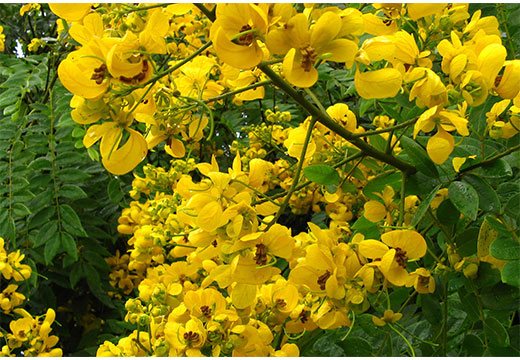
Plants used individually differ in their effects on the body. Some laxative herbs for cleansing the clogged intestines begin to act after 3 hours, others after a day. Depending on how quickly you need to cleanse the body, weed is selected.
- Flax and plantain seeds, dandelion, chickweed will have a mild effect, accumulated toxins will begin to come out in the evening if you take the decoction in the morning.
- For severe constipation, quick action is needed. Then they take senna, buckthorn bark, and flax.
Rules of application
To be effective, herbs with a laxative effect must be properly prepared and taken. Plants and herbs will help relieve bloating, heaviness and constipation, if you simultaneously follow the general rules of nutrition.
It is ineffective to treat when the intestines are constantly under increased stress due to the consumption of heavy foods. It is important to eat more plant fiber and drink plenty of fluids.
How to use laxative herbs for constipation in adults:
- You need to prepare decoctions in glass or enamel containers;
- use only one remedy, do not combine several recipes at the same time;
- do not combine herbs to cleanse the intestines with laxatives;
- take breaks between courses, drink one product for no more than 14 days;
- Do not use plants that have expired or were stored incorrectly.
Popular recipes
The best laxatives that get good reviews:
- Dandelion flowers are poured with a glass of boiling water. The decoction is infused for 5 minutes. Take a tablespoon 2-3 times.
- Plantain seeds are poured into a liter of boiling water. The product is infused during the day. Take on an empty stomach in the morning and evening.
- Chamomile flowers, St. John's wort, calendula, fennel fruits are poured in equal proportions with 2 glasses of water. The decoction is infused for 20 minutes. Take 1/3 cup 3 times.
- Licorice, fennel, flax, marshmallow are poured into a teaspoon of boiling water. In an hour the product will be ready. Use half a glass 2 times.
There are no universal remedies, and what helps one may harm another. Proven and popular recipes in some cases can be useless and even dangerous.
Recipes for colon cleansing with herbs
Cleansing the intestines of waste and toxins can be done by using a decoction of one of the medicinal plants, and you can also make an herbal mixture. For such purposes, many varieties of natural medicinal raw materials are used; independent combination is allowed, but you must have certain knowledge of the properties of the plants from which you plan to make a decoction.
A decoction of flax seeds is considered the safest, universal remedy that helps not only cleanse the intestines, but also restore microflora and relieve inflammation of the mucous membrane. To prepare it, you should take one teaspoon of seeds, pour a glass of boiling water, boil for five minutes, cool, divide into three parts, two of which are taken before bed, and the rest is drunk in the morning before breakfast. The course of treatment with the decoction is a week, after which you should take a break. A fairly practical way to prepare a medicinal mixture is to grind the seeds, pour boiling water over them, and leave overnight. Drink the tincture according to the method of the previous decoction.
For constipation, it is allowed to mix crushed grains with yogurt and kefir. Drink a “cocktail” in the morning instead of food.
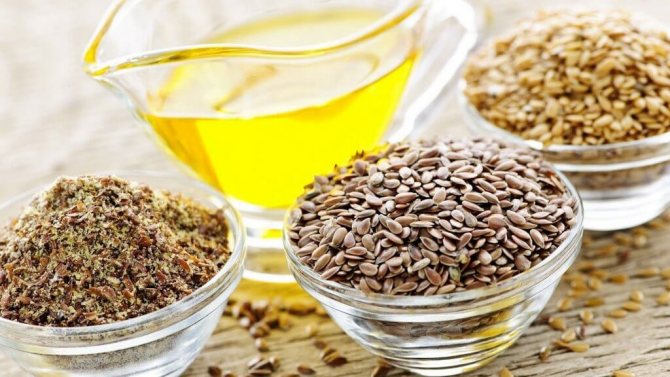
Another effective, frequently used cleansing agent is horsetail, the advantage of which is its gentle, gradual action. To prepare a decoction of this medicinal plant, take a teaspoon of dry horsetail, pour a glass of boiling water and leave for two hours, after which the decoction must be strained and drunk in small portions throughout the day. The course of treatment lasts up to two weeks, after which the decoction is stopped for a month, and after that the cleansing course is allowed to be repeated.
Senna herb is the most popular remedy for cleansing the intestines; it is included in herbal preparations for weight loss due to its strong laxative properties. The popularity of senna can be explained by the fact that the herb has a positive effect on the kidneys and liver, it helps the rapid movement of food through the intestines and its effective cleansing. Decoctions from senna are prepared in the presented way: pour half a teaspoon of the herb with cold water, put the container on the fire, bring to a boil, and cook for eight to ten minutes. Then filter and leave for an hour. The prepared decoction is drunk two-thirds of a spoon in the evening and one in the morning. Senna is a strong remedy, so its effects will be felt immediately. You are allowed to drink it for a week, then you should take a break for several months. Long-term use of the decoction can lead to discomfort in the intestines and dehydration.
To cleanse the intestines, it is possible to use any herbs that have an enveloping, laxative, anti-inflammatory, and sedative effect. It is possible to select each herb individually, being interested in their effect on the human body; this approach will help you independently create an individual collection with maximum effect for a particular person. Herbal infusions are highly effective and, in addition to cleansing, help restore overall health.
A classic collection for cleansing the intestines may include different herbs, but they must have a certain effect on the body; the classic collection should include herbs:
- Plants with a laxative effect: senna, rhubarb, buckthorn;
- Choleretic agents: corn silk, dandelion;
- Calming herbs: mint, lemon balm, motherwort;
- Herbs that can dissolve intestinal contents: fennel, plantain grass.
It is possible to cleanse the intestines using one of the most popular collections No1, but its preparation is more complicated than when forming a classic collection, where arbitrary combinations are allowed. The collection includes one tablespoon of immortelle, one spoon of buckthorn, five spoons of lemon balm, one teaspoon of cumin and fennel seeds, five tablespoons of ground rose hips and one spoon of birch buds. In the collection, you should adhere to the rationing of herbs, it should be enough for ten days, drink decoctions in small portions throughout the day.
Another popular means of cleansing is the collection No2, which contains five tablespoons each of mint, chamomile, St. John's wort and plantain, as well as one teaspoon each of dill seeds, senna herb, wormwood, and celandine. The collection is brewed in two teaspoons per liter of water, drunk one hundred milliliters, three times a day before meals.
Contraindications and side effects
Herbal laxatives are effective, but not for everyone. This treatment method is not recommended for children and pregnant women, as there may be an unpredictable reaction. Even a safe laxative herb can cause allergies. In addition, there is a risk of side effects from the gastrointestinal tract - nausea, bloating, soreness.
Herbs for constipation have the following contraindications:
- exacerbation of gastrointestinal diseases;
- acute hemorrhoids, anal fissures;
- heart and vascular diseases;
- pregnancy, childhood;
- acute inflammatory diseases in the body.
The presence of such contraindications does not exclude the use of plants, but prior consultation with a therapist or gastroenterologist is necessary. You need to take herbs for constipation according to the instructions. Exceeding the dosage will not speed up the onset of the effect, but increases the risk of side effects.
The effectiveness of herbal medicine in pathology
Often, constipation occurs against the background of gross neglect of diet or as a result of the development of gastrointestinal diseases. Alternative medicine offers a huge number of herbal remedies that help tidy up the intestines and relieve muscle spasm, which often occurs with constipation.
According to their type of action on the body, herbal remedies are conventionally divided into:
- laxatives;
- softening stool;
- increasing the volume of intestinal contents.
Each type of remedy eliminates certain digestive disorders that cause constipation. So it is optimal to consult a specialist on this issue before starting a treatment course. A clear advantage of herbal medicine is the simplicity of the technique. Medicinal herbs for constipation are used in the form of decoctions, infusions and teas, which are so easy to prepare at home.
Features of treatment with folk remedies
Herbal medicine is an excellent helper for spastic and atonic types of constipation. Traditional medicine offers a huge number of herbs that help relieve spasms and pain, plus they have a carminative and sedative effect. It is acceptable to use fees presented by pharmaceutical drugs.
It should be noted that in addition to the fact that herbs heal, they help the body gain useful microelements. Herbal infusions are unique and allow you to prepare a laxative in the form of tea, infusion and decoction. In addition, preparing them is not difficult; any patient can handle the process at home.
But, as already mentioned, you should never take herbs thoughtlessly. They may be prohibited for a particular patient suffering from constipation, depending on individual health status. In addition, there are herbs that can provoke an increased heart rate, increased blood sugar, and increased blood pressure. Before self-medication, be sure to consult a doctor so that your body does not suffer serious complications.
Constipation is not just a phenomenon as such, it can be a consequence of concomitant diseases. Therefore, herbs should not only have a laxative effect, but also have a number of other properties. Below are some indications for the use of herbs:
- to eliminate sluggish intestinal motility;
- to improve digestion;
- relieve the patient from chronic constipation;
- to participate in a total body cleansing program;
- promote the removal of decay products and toxins;
- help the patient get rid of extra pounds.
Indications for use
Constipation is usually called the absence of bowel movement for several days or the presence of dry and very hard stool, which is accompanied by discomfort and bloating. Such problems may arise against the background:
- lack of coarse fiber in the daily menu;
- excessive use of medications;
- due to violations of the water regime;
- lack of physical activity.

But an equally common cause of constipation is gastrointestinal pathologies. Regardless of the reasons that cause problems with bowel movements, they should be eliminated as soon as they appear. This will help prevent the pathology from becoming chronic and prevent the development of complications. As practice shows, medicinal plants with a laxative effect are an effective method in the fight against constipation.
Constipation symptoms
The main symptoms of constipation are:
- stool retention;
- feeling of incomplete bowel movement after defecation;
- bloating and feeling of heaviness in the abdomen;
- feces in the form of small balls, dry and dense feces;
- To perform the act of defecation, strong straining is required.
Chronic constipation can be manifested by symptoms of dyspepsia:
- decreased appetite;
- flatulence;
- stomach ache;
- nausea;
- heartburn.
In addition, with prolonged chronic constipation, intoxication of the body occurs, which is manifested by a deterioration in general well-being, causeless weakness, increased fatigue, irritability, headaches, and insomnia.
As for the timing when delayed bowel movements can be considered constipation, there is a wide range, since each person has a different bowel movement frequency.
The norm is defecation, which occurs from three times a day to three times a week, provided that the person feels well and the stool is soft. Therefore, delaying bowel movements for a day is the norm for some, but constipation for others.
Types of plants with laxative effects and their properties
The use of herbal remedies for constipation is an old and proven method recognized by traditional medicine. Herbal laxatives have the following, rather conventional classification:
- plant seeds that help speed up bowel movements;
- laxative herbs for constipation, softening stool;
- common laxative plants.
Seeds
The most popular representatives of this group include the following seeds.
- Flax-seed. The product has no contraindications. It is taken 1 tsp. twice or thrice a day, with a significant amount of water.
- Plantain seeds. Their action is based on an increase in the stomach and swelling in the intestines. Due to this, an increase in feces is observed, which stimulates the intestines to excrete them. The indication for taking the drug is chronic constipation. Recommended dose – 3-5 tsp. in a day. You should also drink them with plenty of water. However, plantain seeds are contraindicated for people with allergies and asthma.
This type of product is quite effective, but is not suitable for children. And not every adult can easily follow all the recommendations.
Emollient herbs
They can be called a more gentle method that helps soften feces, which greatly facilitates the process of bowel movement. In addition, the use of herbs almost never causes problems. Typical representatives of this group.
- Dandelion. An infusion of rhizomes and leaves of the plant is excellent for older people suffering from constipation.
- Gerbil. Contains a large amount of minerals that help soften stool. For hemorrhoids and chronic constipation, tea made from chickweed leaves is indicated.
Popular pharmaceutical herbal remedies
The pharmaceutical industry supplies pharmacies with huge quantities of laxatives of herbal origin. Among them:
- Tincture of steelweed rhizomes.
- Laminaria extract in tablets or granules.
- Kafiol tablets. Ingredients: senna and figs.
- Dietary supplement "Fitolax". Contains: senna, dill, plantain leaves and apricot.
- Buckthorn. Based on the fruits and bark of the plant. Available in extract or syrup form.
- Pharmacy fee No. 1. Ingredients: anise, senna leaves, nettle, buckthorn, licorice, yarrow.
- Laxative collection No. 2. Ingredients: anise, senna, buckthorn bark and fruits, licorice root.
The best effect is achieved with drugs in tablet form containing several components. But a significant disadvantage of such products is the possibility of an allergy to any of the components. If we consider independent medicinal plants, then the most popular herb for constipation remains senna.
Side effects
Negative manifestations are possible both due to the use of pharmaceutical and homemade herbal laxatives. As a rule, unpleasant moments indicate intolerance to one of the ingredients, incorrect dosage, or a violation of the preparation technology of the product.
Common side effects include:
- heartburn;
- allergies;
- addiction;
- nausea and vomiting;
- soreness in the stomach.

But no matter what herbs you use, it is quite possible to avoid unpleasant symptoms if you do not ignore the doctor’s recommendations and carefully read the instructions before use.
Herbal Recipes for Constipation
There are a lot of options for various laxative preparations, and the raw materials for their preparation are always easy to purchase at a pharmacy or prepare them yourself, having previously delved into the timing and technology of collection. However, the same herbs are not always suitable for both adults and children.
Recipes for adults
To prepare an infusion of such popular senna, you need 1 tbsp. l. pour 250 ml of boiling water over the herbs and let it brew for about 5 minutes. Then the infusion is filtered and drunk before bed. Nettle infusion is prepared using the same scheme.
You can also collect a herbal mixture, including 3 parts of buckthorn, 2 parts of nettle and 1 part of yarrow. The ingredients are mixed. Then take 1 tbsp. l. collection and pour 200 ml of boiling water. After the product has infused, it is also filtered and drunk before going to bed.
For children
As already mentioned, many herbs for constipation are not suitable for children. However, this does not mean that children cannot be treated with herbal medicine. Thus, the color of elderberry and the fruits of joster are perfect for relieving constipation in a child. A collection is prepared from these plants by mixing them in equal proportions. Then take 1 tbsp. l. mixture of herbs, pour 200 ml of boiling water over it and boil for about a quarter of an hour. The prepared and filtered decoction is taken 2 times a day, 200 ml.
Dandelion is also suitable for children. An infusion is prepared from its rhizomes: 2 tsp. raw materials are poured with 250 ml of cold water and left for 8 hours. Afterwards it is filtered and taken ¼ cup before each meal.
Often, babies with abnormalities in the gastrointestinal tract suffer from bloating. Regular dill helps get rid of several problems at once. This plant softens stool in a short time, thereby relieving both constipation and bloating. To prepare the healing remedy, take 3 tbsp. l. seeds and pour boiling water. After this, the broth is simmered over low heat for another quarter of an hour. The cooled product is filtered and drunk before meals.
With proper use of such remedies, the prognosis for constipation is very favorable. Such herbal remedies help eliminate the problem without addiction, as is often the case with potent laxatives, which not only irritate the intestines, but also provoke a number of side effects.
Laxative herbs for constipation: list of plants, fees and pharmaceutical preparations
Many people mistakenly believe that of all laxatives, it is best to take herbs, since they are the most natural. But not everyone realizes that they are the most difficult to dose. If you need to use a laxative once, you can drink an infusion of herbs. And if constipation has become chronic, it is better to choose medications.
Herbs that have a laxative effect
- Senna (Cassia aculifolia). The leaves contain special substances (anthraglycosides), which chemically irritate the intestinal walls, which causes their accelerated contraction. Effective 8-12 hours after oral use.
- Alder buckthorn. Anthraglycosides are found in the bark of the bush. The action is similar to hay.
- Zhoster laxative (buckthorn laxative). The active ingredients in this type of plant are contained in the fruits from which the decoction is made.
- Seed flax. Its seeds contain mucus, which has an enveloping and mild laxative effect.
- Laminaria (sea kale). Its thalli are capable of swelling and increasing in volume, which causes mechanical irritation of the intestinal walls, stimulating its motility. Due to the content of iodine salts, kelp can additionally affect the metabolism of fats in the body.
- Dill is fragrant. In addition to the well-known carminative effect, it also has mild laxative and antispasmodic properties. Used for flatulence and constipation as an aid.
- Common oregano. Its herb is used as a choleretic, diuretic, antimicrobial, expectorant and sedative. Additionally, it increases appetite and enhances intestinal motility.
Herbal remedies that can be used for constipation
- Proctophytol . It is an antihemorrhoidal preparation. Ingredients: senna, buckthorn, coriander, yarrow, licorice. It has hemostatic, antispasmodic, anti-inflammatory and laxative effects. Available in filter bags containing 2 g of raw materials. Directions for use: Place 4 g of herb in a deep plate or mug, pour a glass of boiling water and leave for 15 minutes. Drink 150-200 ml of infusion at night. The effect is observed closer to the morning. The duration of the course should not exceed 7 days in a row. Can be used for hemorrhoids, when stool retention is extremely undesirable.
- Gastric collection No. 3 . It copes well with constipation and intestinal spasms that may occur against their background. Ingredients: nettle, buckthorn, valerian, calamus, mint. Produced in the form of filter bags of 2 g each. Method of preparation: pour boiling water over 2 filter bags and leave for half an hour. The infusion is consumed twice a day, half a glass: morning and evening. It is recommended to shake before use to remove sediment from the bottom. The duration of the course is no more than a week.
- Laxative collection No. 1 . Ingredients: buckthorn, nettle, yarrow. Available in packages of 100 g. Method of use: place 6 g of raw materials in a bowl, pour boiling water and place in a water bath. After 30 minutes, remove and cool. Take half a glass at night. The effect occurs after 8-12 hours, the duration of action directly depends on the state of the gastrointestinal tract of a particular person. The course should not exceed 7 days.
We recommend reading:
Exercises for constipation to improve bowel function
Herbal laxative tablets
Products related to both medicines and dietary supplements:
- Senade (Senadexin). The active ingredients of Cassia aculifolia are sennosides A and B. Take 1 tablet at night. If there is no effect, it is possible to increase the dose to 2-3 tablets at a time. Relief is observed after 8-10 hours. Allowed with caution from 6 years of age.
- Phytolax. Available in the form of chewable tablets with a pleasant taste, which do not need to be washed down with water. Ingredients: senna, apricot, dill, plantain, dietary fiber. Take 2 tablets with meals in the evening. Allowed from 14 years of age.
- Fitoslabin. Tablets based on buckthorn, senna, mint. Taken only by adults, 2 tablets before bedtime. Course – 2-3 weeks.
- Frutolax. Available in capsule form. Ingredients: beets, prunes, figs, apricot, senna, fennel, lactulose. Approved for use from 14 years of age, take 2 capsules in the evening. Adults can increase the dosage to 4 capsules. Course – 2 weeks.
Senna-based tablets are considered “hard” laxatives, and uncontrollable diarrhea very often occurs. The act of defecation may be accompanied by painful spasms. It is best to use them once to avoid addiction.
Products based on other herbs or fruits are much gentler. They can be taken daily for 2-3 weeks, but there is also a chance of addiction, although not as high.
The appearance of “naturalness” is deceptive. Almost all herbal medicines have negative consequences, therefore they are prohibited until the age of 14 (except for senna - it can be used with caution from the age of 6).
Herbal infusions are dangerous because you can easily exceed the dosage if you measure the raw materials incorrectly.
This is especially true for plants that are not sold in pharmacies - they can be collected by mistake and have not a laxative effect at all, but a toxic one.
Products with laxative effects
It is useful to have laxative products in the refrigerator. After all, constipation can come as a surprise and ruin your mood. Laxative products contain insoluble fiber. It removes digested food naturally, eliminating constipation.
Bran
Bran stimulates the intestines and makes them work. In 100 gr. bran contains 43 grams. fiber.
- Pour boiling water over bran in its pure form and leave for 30-40 minutes.
- Drain the water and add bran to porridge (buckwheat, oatmeal, rice), salad or soup.
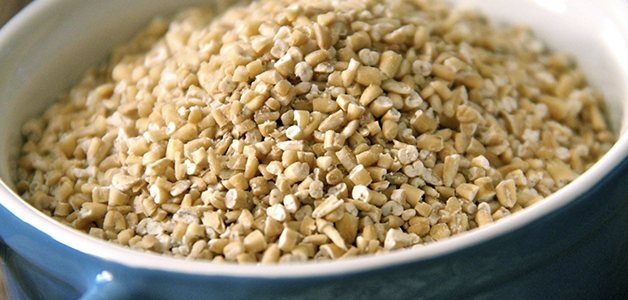
Pumpkin and millet
Pumpkin is a low-calorie product containing fiber (2 grams per 100 grams of product). Pumpkin can be baked, stewed or boiled.
Herbs with laxative effects
Contains dietary fiber and biologically active components. Anthraglycosides and essential oils reduce inflammation of the gastrointestinal mucosa, dilute stool and remove it, cleansing the intestines and eliminating spasms.
Buckthorn bark
Contains inactive anthraglycosides (8%). Therefore, the laxative effect occurs 8 hours after taking the decoction. Not suitable for frequent use as it is addictive.
- Pour 20 grams of bark into 250 ml. boiling water
- Let the broth brew for 25 minutes and cool.
- Drink 125 ml before bed. decoction
Zhoster
In terms of laxative effect and glycoside content, it does not differ from buckthorn bark. It has an antibacterial effect, as it contains 3% ascorbic acid.
- Pour a tablespoon of fruit into a liter jar.
- Pour in 250 ml. boiling water
- Leave the broth for two hours, then pass through cheesecloth.
One tablespoon of joster decoction will help relieve constipation. Use 3 times a day.
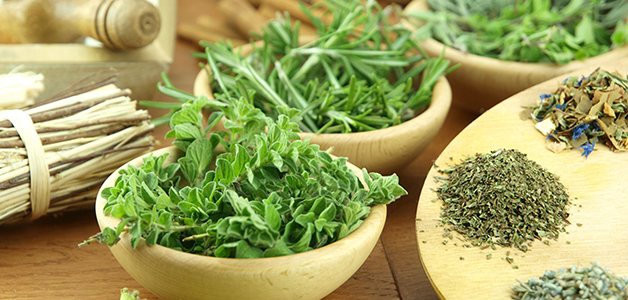
Rhubarb root
Contains tanoglycosides (8.7%) and anthraglycosides (4.5%). The former have astringent properties and help against diarrhea. The latter, on the contrary, are responsible for “awakening” the intestines and help cope with constipation. To combat constipation, brew rhubarb root.
- Pour two tablespoons of chopped root into 500 ml. boiling water
- Leave for an hour.
- Drink 250 ml. decoction twice a day.
Has no contraindications for pregnant women.
Toadflax
Contains active glycosides, so the laxative effect occurs within the first two hours after use. “Atlas of Medicinal Plants of the USSR” Tsitsin confirms that the herb helps cope with acute constipation. Has a strong choleretic effect. Use is contraindicated for pregnant women. For diseases of the liver, kidneys and gall bladder, use as recommended by a doctor.
- Pour a teaspoon of flax seed into a glass of boiling water. Leave for 12 hours in a thermos mug.
- Drink the entire infusion before bed along with the seeds.
Cannot be used for long-term use.
Laxative herbs, laxative herbal mixtures and preparations containing laxative herbs are recommended to be used after consultation with a doctor.
Collection of laxative herbs:
- Licorice root (powder) . Stir one teaspoon of powder in warm boiled water and drink.
- A collection of buckthorn bark, licorice, fennel and anise . Prepare a decoction. Drink 60 ml. decoction twice a day.
- A collection of licorice, buckthorn bark, joster and fennel . Prepare a decoction and drink 250 ml. in a day.
- A collection of peppermint, chamomile, buckthorn bark, anise and fennel . Prepare a decoction. Drink 125 ml. decoction twice a day.
More recipes
Herbal remedies are good because, unlike traditional medicines, they are less harsh on the body and have virtually no side effects. But you still need to consult a specialist before using them, because not all herbs can be used if the patient has serious intestinal diseases.
Here are some of the most popular laxative folk remedies:
- When a patient experiences pain in the hypochondrium, it is recommended to use a honey-based herbal mixture. To do this, you will need herbs such as hawkweed and St. John's wort. Each of them should have two parts, to which part of the crushed caraway seeds should be added. Pour half a liter of boiling water over the resulting mixture of herbs (one tablespoon), then add about two tablespoons to the mixture. The folk remedy should infuse for 24 hours. Taken as a drink throughout the day.
- Another effective collection of well-known herbs is excellent in treating constipation. To do this, you will need a mixture of plants: alder buckthorn (six parts), nettle (two) and sweet clover (two). Be sure to crush the entire composition and pour boiling water (a glass to a teaspoon). After which the product should sit well. Strain before use. It is recommended to drink one hundred grams of it before bed.
- The following remedy quickly helps to cope with constipation. To prepare it you will need to collect licorice (three parts), marshmallow and flax (five), fennel (three). Everything is crushed in the volume of a teaspoon and filled with a glass of water. After the product has infused, take half a glass once a day in the evening.
- We should also tell you about such a simple recipe, the basis of which is agave and aloe. It is prepared as follows. Firstly, to extract pure juice, you need a plant that is three years old or older. Before cooking, be sure to cut off the leaves at the very base and put them in the refrigerator for several days. Then take them out and put them under a press. When the juice has evaporated, you can take a teaspoon. Sometimes this drink is mixed with honey to add flavor.
As you can see, there are many recipes, and not all are given here, but among the presented recipes, each patient will be able to find the most suitable one for himself.
Laxative recipes for children
Laxatives for children should have a mild effect so as not to spoil the children's intestinal microflora. A folk laxative for children is safer than laxative medications, which can cause complications and allergies.
Flax seed decoction
Infants can be given a microenema with a decoction of flaxseeds. This is a fast-acting folk laxative. It is necessary to carefully administer the enema without injuring the child. A decoction or tea of flax seeds can be given to children from three years of age.
Required:
- 3 grams of flaxseeds;
- 100 ml. boiling water
Cooking method:
- Pour boiling water over the seeds.
- Leave, stirring, for 15 minutes.
- Strain through cheesecloth or a sieve.
- We give the child 2 ml of decoction with unsweetened compote or water.
Dill water
Has a mild laxative effect. Prevents constipation, reduces colic.
Required:
- 15 grams of fragrant dill seeds;
- 300 ml. boiling water
Cooking method:
- Pour boiling water over the seeds.
- Leave for 20 minutes.
- Strain through cheesecloth.
- Give your child 20 ml throughout the day. dill water.
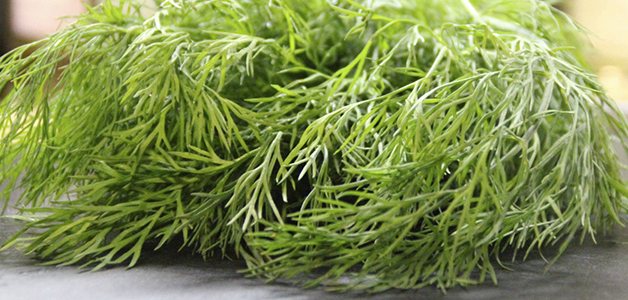
Alternative traditional medicine
At home, berries are considered a good help in treating constipation. In addition to affecting the disease itself, you can make the treatment process pleasant and tasty. Such berries include red rowan, gooseberry, and lingonberry. Preparing the medicine is quite simple, but some drugs require preliminary preparation:
- Rowan. Restores independent stool in case of chronic constipation. First, a sweet syrup is prepared - the berries are covered with sugar and set aside for a month. Then squeeze out, add alcohol to the liquid (25 ml of alcohol per 0.5 liter of syrup). Take daily before the morning meal. Important! The mixture is diluted with water before use.
- Gooseberry. In folk medicine, berry decoction is used. Berries (one tablespoon) are boiled for 10 minutes in a glass of water. If desired, add sugar to the finished medicine. You should take a quarter glass daily.
- Cowberry. An infusion of lingonberries is suitable for eliminating occasional constipation, but also gives a stable result in the case of a chronic disease. Cooled boiled water is poured over the berries placed in a glass jar. Then cover tightly with parchment paper or polyethylene and keep in a cool place until needed. One glass of infusion is taken on an empty stomach in the absence of stool.
Treatment with aloe and agave juice is considered a good remedy. Pure juice or sweetened with honey is added to recipes.
Dried fruits are an excellent replacement for “tasteless” medications. The most effective are prunes, dried apricots, and figs. They are consumed in the form of compotes, decoctions and simply steamed fruits.
Fast-acting folk laxatives for constipation are in great demand. These primarily include vegetable oils - castor, flaxseed, olive, sunflower, pumpkin. Before use, you should consult your doctor. It is necessary to take into account the general health of the body and the fact that some oils are addictive (castor oil).
Senna, buckthorn and rhubarb are also fast-acting remedies, but the generally accepted folk laxative for fast action is an enema or micro-enema. You cannot use this method all the time, because the rectum gets used to forced cleansing and becomes “lazy.” Pure water or saline solution (saline) is suitable for an enema. If kidney function is impaired, salt enemas are contraindicated.


